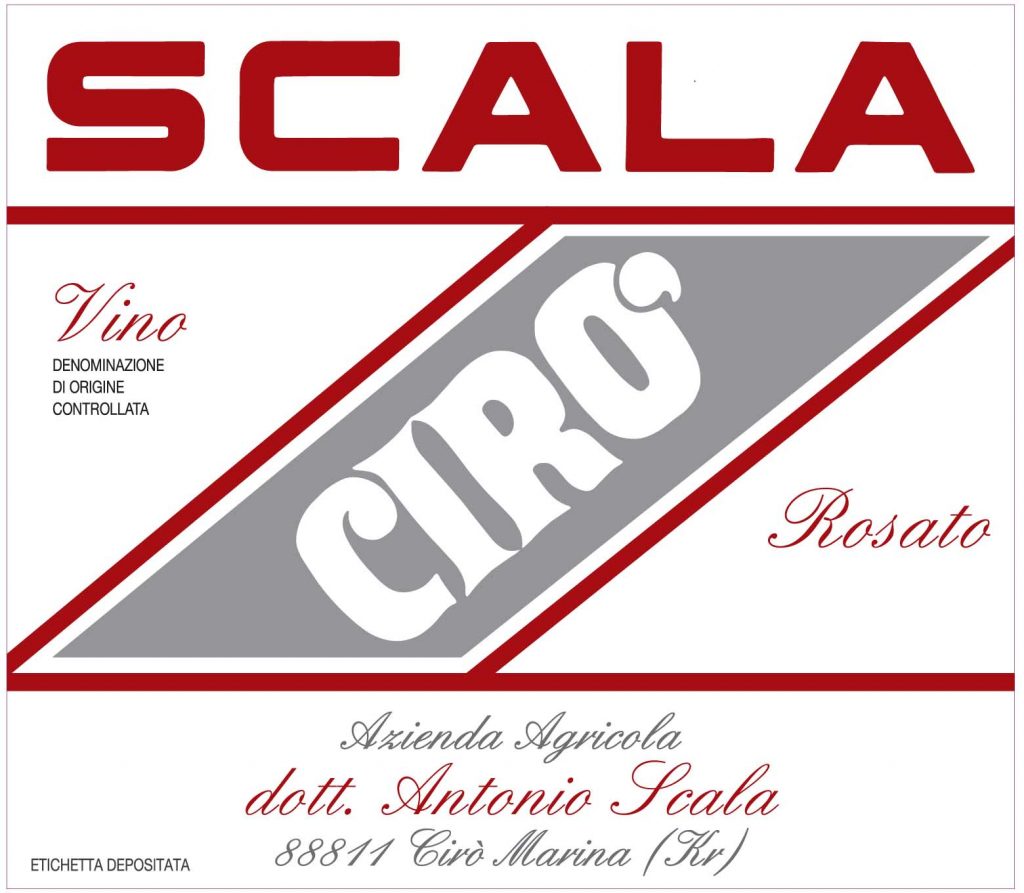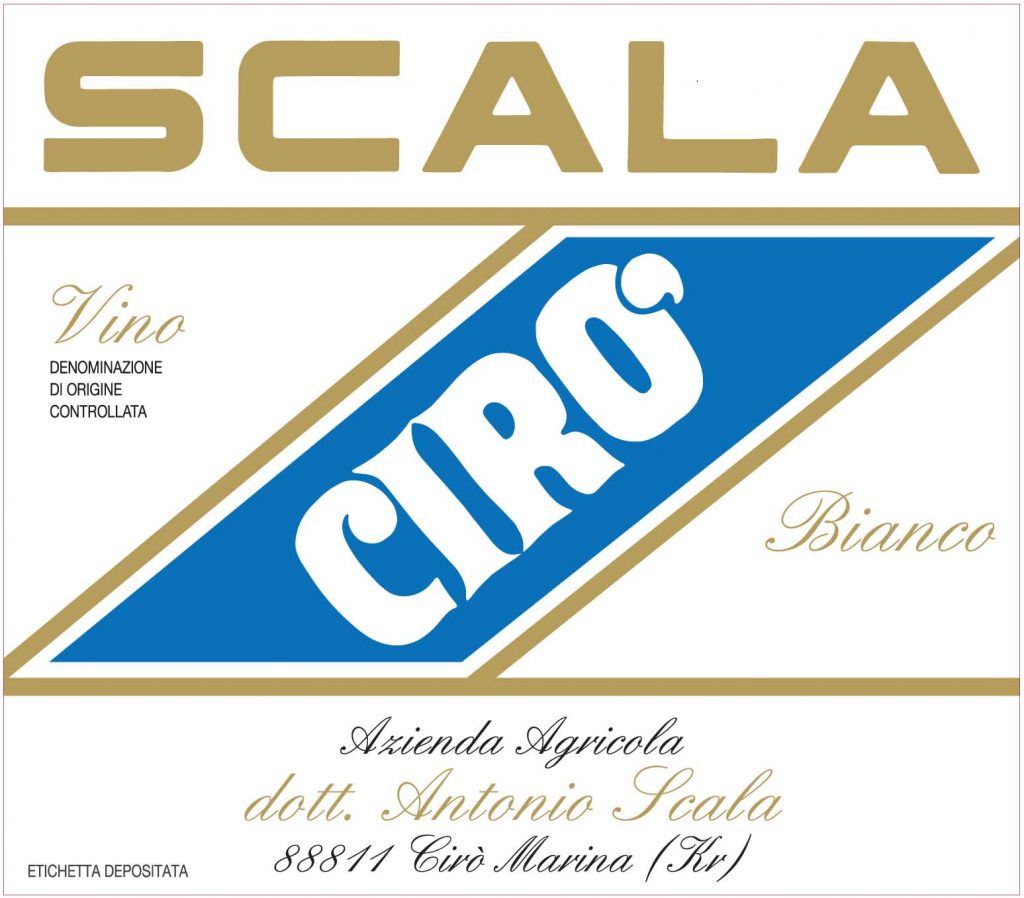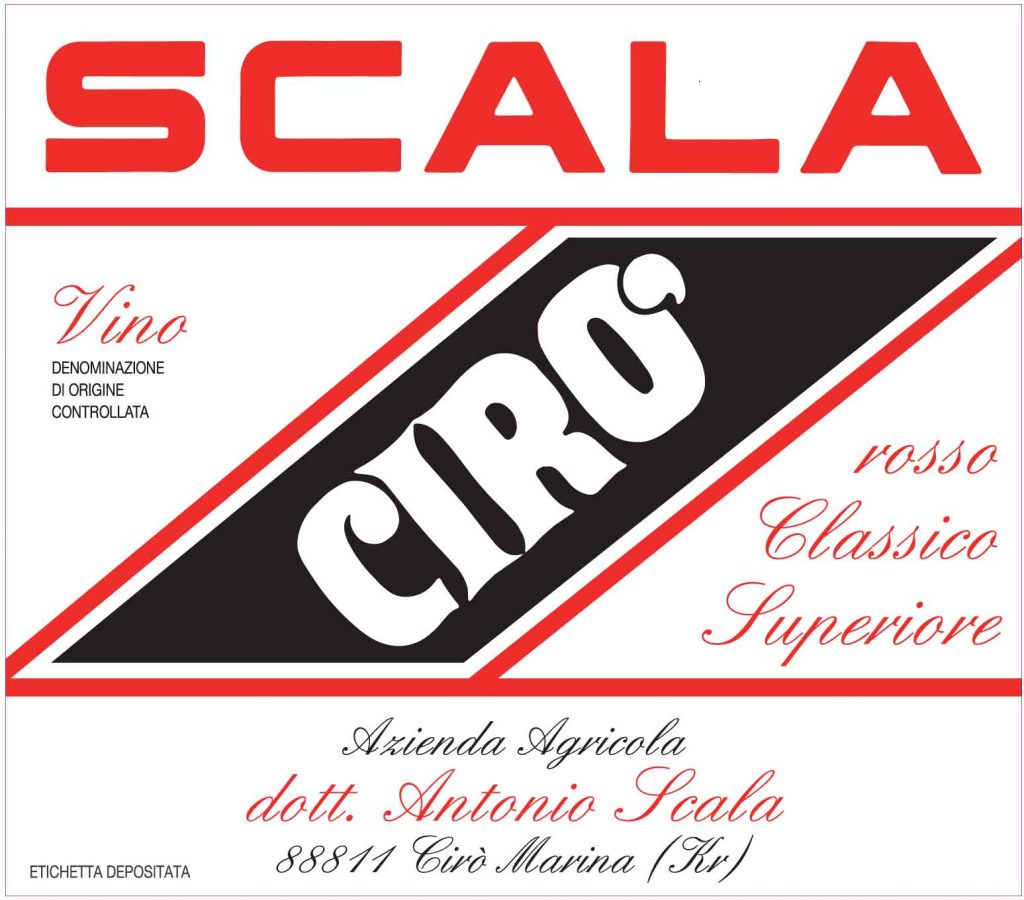In the Scala family since 1949, the domaine is now run by Luigi Scala and son Francesco, who leads the production of Cirò wines following family traditions. From the growing of the grapes to the refinement and aging of the wines, he favors quality over quantity and aims to produce distinguished Calabrian wines.
18 hectares for an overall production of 100,000 bottles. Grapes are native varieties such as Gaglioppo, Magliocco, Nerello, Mantonico and Greco. They are cultivated in espalier on the hinterland plains and hills, on argillaceous and sandy soil. Vine ages 15-20 years.
Farming/vinification practices: Scala exclusively uses organic products for the past 10 years, such as lupins to fertilize the vineyards; it provides the soil with nitrogen and helps eliminate weeds. Certified organic, starting with the 2016 vintage.
We don’t use any animal protein like albumin or casein for stabilizing the wines. I am badly allergic to the casein! I can’t drink milk or eat cheese, mainly when they are fresh. We simply stabilize the Cirò Bianco and Rosato putting them in a conditioned tank at low temperature for 7-10 days. As for the red wines, they are stabilized with natural ageing.
Wines
Scala Rosato
100% Gaglioppo from estate vineyards located in Cirò (Crotone district), with a south/south-east exposure – sand and clay soil. The vines were planted in 1987 and 1997 and are trained in espalier. The grapes are all hand-picked.


Scala Bianco
100% Greco, from vineyards located in Cirò (Crotone district), 100 to 150 meters above sea level. The vines were planted in 1997 and face south/south-east. They are trained in espalier.
Scala Rosso Classico Superiore
100% Gaglioppo a thick-skinned grape indigenous to Southern Italy and best known for the production of Ciro DOC. The grapes comes from a vineyard called “Franza”, in Contrada Franza (municipality of Ciro), in the region of Calabria. The wine is racked and left in cement tanks for a minimum of 10 to 12 months.

Image Sources: foodiesfeed, WOCinTechChat, GraphBerry
